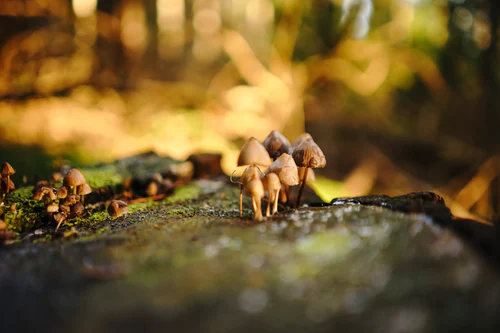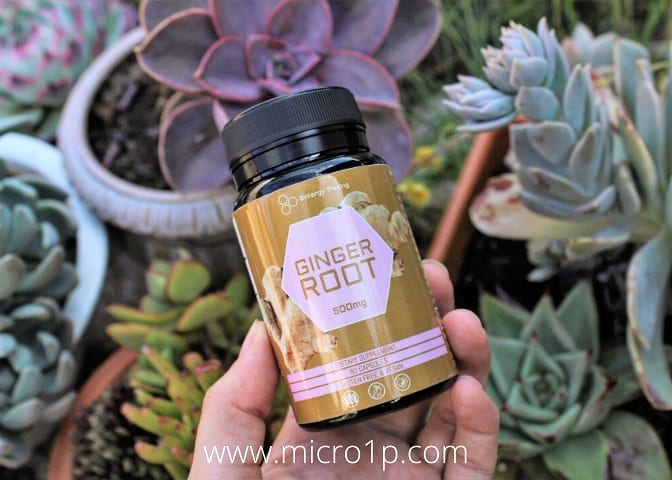
Best Books on Microdosing
The best books on microdosing may not be what you think. Psychedelic substances have been ostracized from society for many decades. They get a bad
Lion’s Mane is a culinary and medicinal mushroom, and like many other edible fungi, they have essential nutrients and important health benefits. However, this particular species of fungus has been extensively studied and is an established candidate for better brain & nerve health and a host of other health benefits; a fact that is interesting since its appearance is often compared to the appearance of the human brain and nervous system. Let’s dig a little deeper in the compost to find out what all this odd-looking fungus is good for.
Most people’s experience with eating mushrooms extends only to when it accompanies the pepperoni topping on their pizza. However, there’s a lot of interesting things to know about them, ranging anywhere from magic mushrooms having therapeutic uses today, to lion’s mane mushroom tasting like a crustacean; the latter of which is why the mushroom is highly-prized by culinary experts.
Moreover, its flesh is said to taste similar to lobster or scallops, and it is the only fungus that has this distinction. However, lion’s mane, cordyceps, reishi and other similar fungi are also superfoods. They act as turbo-shots for your immune system and have played a role in traditional medicine for ages. That being said, this article focuses on lion’s mane mushroom so let’s begin with what it is, exactly.
Lion’s mane is a mushroom that is part of the tooth fungus group, and it commonly grows throughout Asia, Europe and North America. It propagates on decaying trees, and its appearance is glob-like, with a white fruiting structure with spines that cascade downward from its body.
The Latin name for lion’s mane is Hericium erinaceus, which combined together means hedgehog. The fungus got its name from its appearance; with some saying it has some resemblance to a lion’s mane. Lion’s mane is also is known as bear’s head, monkey head, bearded tooth mushroom, Japanese yamabushitake, sheep’s head and satyr’s beard.
Lion’s mane is a mushroom that is part of the tooth fungus group, and it commonly grows throughout Asia, Europe and North America. It propagates on decaying trees, and its appearance is glob-like, with a white fruiting structure with spines that cascade downward from its body.
The Latin name for lion’s mane is Hericium erinaceus, which combined together means hedgehog. The fungus got its name from its appearance; with some saying it has some resemblance to a lion’s mane. Lion’s mane is also is known as bear’s head, monkey head, bearded tooth mushroom, Japanese yamabushitake, sheep’s head and satyr’s beard.
In addition to being edible, this species of mushroom has been shown to have medicinal properties, as such they are often used in traditional medicine and in dietary supplements.
Because of its usefulness, demand is skyrocketing, and specialty mushroom farmers produced over 8.9 million kilograms of mushrooms in indoor and outdoor environments in the United States alone.
The day of medicinal fungi and fungi-derived products has definitely arrived, and they are becoming a vital part of the human diet throughout the globe. Ahead, let’s discuss the main reason people turn to the consumption of lion’s mane mushroom.
“Without leaves, without buds, without flowers, yet, they form fruit; as a food, as a tonic, as a medicine, the entire creation is precious.”
That charming mushroom poem was found in an ancient Egyptian temple, and it was actually about truffles. It could just as easily be describing the beauty and usefulness of many edible mushrooms in traditional medicine, especially in the case of lion’s mane.
Lion’s mane mushroom is packed with physiologically essential components that have antioxidant and neuro-protective activities. That aspect makes them potentially therapeutic and preventative agents. And, research suggests that this mushroom offers a range of fierce health benefits that include anything from preventing dementia, to better heart health, to protecting against stomach ulcers. Ahead, let’s look at what the studies tell us lion’s mane is good for.
In the article, “Neuronal Health – Can Culinary and Medicinal Mushrooms Help?” researchers wanted to find out if lion’s mane mushroom could be tapped to tackle neurodegenerative diseases such as dementia and Alzheimer’s disease. At the end of the study, they found that the fungus may possess strong cognitive benefits. They also stated that regular consumption of this ‘smart mushroom’ may promote brain and nerve health, which is particularly useful as we get older or after accidental injury.
A small study in 2010 indicates that lion’s mane may stave off depression and anxiety. The study, published in Biomedical Research, involved 30 menopausal women who consumed cookies that contained either the mushroom or placebo every day for a four-week-period. After analyzing their findings, researchers concluded that the women in the lion’s mane group were less anxious and irritable than those in the placebo group. They also found the group that took the mushroom could concentrate better.
Lowering Bad Cholesterol
The polysaccharides in lion’s mane are responsible for lowering lipids, and a study on the mushroom species found that it had prowess for withstanding HMG Co-A reductase activity and preventing harmful cholesterol from forming in the body. The study findings suggest that it could aid in preventing oxidative stress-induced atherosclerosis, thereby being of great medicinal value to people suffering from strokes and cardiovascular complications.
Protecting Against Stomach Ulcers
A study in 2013 found that extract from the fungus was more effective at preventing stomach ulcers caused by drinking ethanol (alcoholic drinks) than conventional acid-reducing drugs — and without all the nasty side effects. Additionally, evidence suggests that the extract may also prevent stomach ulcers acquired by H. Pylori bacteria and the chronic use of NSAIDs by inhibiting the bacteria’s growth and protecting the lining of the stomach from damage.
Final Thoughts
Lion’s mane mushroom has many health benefits, and what we’ve listed here is just the tip of the iceberg. In fact, there are studies that strongly support it may have a therapeutic role in fighting anything from cancer to heart disease to chronic inflammation. The key here is that they ‘may’ have health benefits, though, and for now there is a lack of supporting research to confirm that assertion. That means it’s too soon to officially tout lion’s mane as a medicinal therapy for any type of health condition.
As with any supplement, consult with your healthcare provider before starting a lion’s mane extract regimen. Eating it fresh is the same as eating common button mushrooms you buy in the store, though, so feel free indulge in those whenever you want. Be sure to tell us about any benefits you received from the fresh mushroom or its extract once the doctor gives their stamp of approval.
Dosage: Lion’s Mane capsule: 2 per Microdose day (total 1000mg) would be recommend to take
Lion’s Mane is a mushroom that is known for its neuroprotective properties.
It is available both online and in lots of health stores.

The best books on microdosing may not be what you think. Psychedelic substances have been ostracized from society for many decades. They get a bad

As the sun reaches its highest point in the sky during the summer solstice and the darkest night looms in the depths of

What is ‘creativity’? Creativity, by definition, is: ‘the use of imagination and/or original ideas with the motive to create something. Essentially, being creative is inventing

Ginger is known to be one of the healthiest spices on the planet. Ginger root is a plant, originally from China, that is widely

With today’s busy world, you’d be hard-pressed to find someone that couldn’t do with better cognitive processes and vitality. However, did you know that you

Microdosing is the act of ingesting a micro-amount of an often psychedelic substance with the motive to improve one’s life in one or more aspects.
GET 10% DISCOUNT WITH NOTIFIED ABOUT THE LATEST NEWS AND UPDATES. NO SPAM, WE PROMISE!
FREE Tracked shipping on orders over €250 to EU countries.
Monday- Friday 8.30am- 5pm (CET)
A range of options available
Guaranteed delivery or your money back